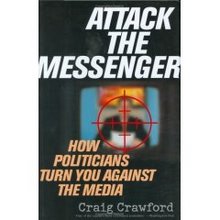"Big Oil Firms Ready to Sign Agreements With Iraq
Two-Year, No-Bid Contracts Aimed at Boosting Production"
Friday, June 20, 2008; Page A12
BAGHDAD, June 19 -- Iraq is preparing to award contracts to several Western energy companies to help develop its vast oil resources, allowing them to consolidate their positions in a country that has seemed less threatening in recent months as security has improved.
The two-year, no-bid contracts will be awarded to companies that have been advising the Iraqi Oil Ministry in recent years, said Asim Jihad, a spokesman for the ministry. He said officials expect that U.S.-based Exxon Mobil and Chevron, Royal Dutch Shell, France's Total and British oil company BP will secure the biggest contracts.
"We have had discussions since last year" regarding deals that would formalize the advisory role some of them are already playing, Jihad said. "The discussions have now ended."
The contracts will be presented to Prime Minister Nouri al-Maliki's cabinet for approval in coming days and could be announced by the end of the month, Jihad said. He added that more than 30 contracts will be signed but declined to describe their scope or provide other details.
He said the Iraqi government informed oil companies several months ago of its needs. Subsequent negotiations led to the contracts, which would allow the government to step up efforts to increase production while legislation setting guidelines for foreign investment in the oil sector remains deadlocked in parliament.
The contracts would expand relationships between the Iraqi government and the energy giants, which have eyed the country's oil fields with interest and apprehension since the U.S.-led invasion in 2003. Some companies have been working with the ministry under memorandums of understanding.
While the contracts would limit the companies' role to infrastructure refurbishment and technical support, the agreements would also position the firms for future deals in Iraq that could include exploration and drilling.
The impending signing of the contracts, which was reported in the New York Times on Thursday, comes as members of Iraq's parliament remain at loggerheads over legislation to regulate the country's oil reserves.
Iraq's largest oil fields are in the heavily Shiite south and predominantly Kurdish areas in the north. Parliament members and leaders have argued over whether oil revenue should be distributed evenly across the country or whether oil-rich provinces should be entitled to a larger share.
They also have squabbled over the role foreign companies should play in Iraq, particularly whether they should be given licenses to drill.
A higher-profile role for Western companies in Iraq's oil industry is likely to revive speculation that the Iraq war was motivated by a desire to tap into reserves that were controlled by foreigners until the 1960s, when the industry was nationalized. The belief is widespread in the Arab world.
Secretary of State Condoleezza Rice on Thursday said the U.S. government played no role in securing the deals. She called the impending contracts a sign that security gains are attracting foreign investment in Iraq.
Iraq's oil reserves are among the largest in the world, but years of economic sanctions, war and political turmoil have taken a toll on the industry. During the first few months of this year, output reached 2 million barrels a day. Hussein al-Shahristani, Iraq's oil minister, told parliament this year that output could more than double within five years.
Officials at some of the oil companies that are expected to sign contracts issued muted statements.
A spokeswoman for Exxon Mobil, regarded as one of the most risk-adverse players in the industry, said the company would be interested in working in Iraq.
Toby Odone, a BP spokesman, said the company has been providing technical assistance to Iraq for years and is formalizing its role in the country.
Shell spokesman Adam Newton said that the company is negotiating "service agreements" with the Iraqi Oil Ministry but that the details are confidential.
Total spokesman Kevin Church confirmed that the company is discussing its future role in West Qurna, one of Iraq's largest oil fields in the south.
Large energy companies have in recent years lost ground in oil-rich countries such as Russia and Venezuela, as governments have tightened their control over the industry.
Manouchehr Takin, a senior analyst at the London-based Center for Global Energy Studies, said the names of the companies negotiating contracts is not surprising.
"They're the big international companies," he said. "They're qualified and experienced."
http://www.washingtonpost.com/wp-dyn/content/article/2008/06/19/AR2008061903232.html
It wasn't Sadam nor democracy nor WMD's. It was oil all along. Reminds me of the film, "Mad Max".There was a long time early on in this administration when we neither saw nor heard from Cheney. I suspected then that he was carefully mapping out Iraq for oil and cutting the slices just a little thicker for his buddies.




No comments:
Post a Comment